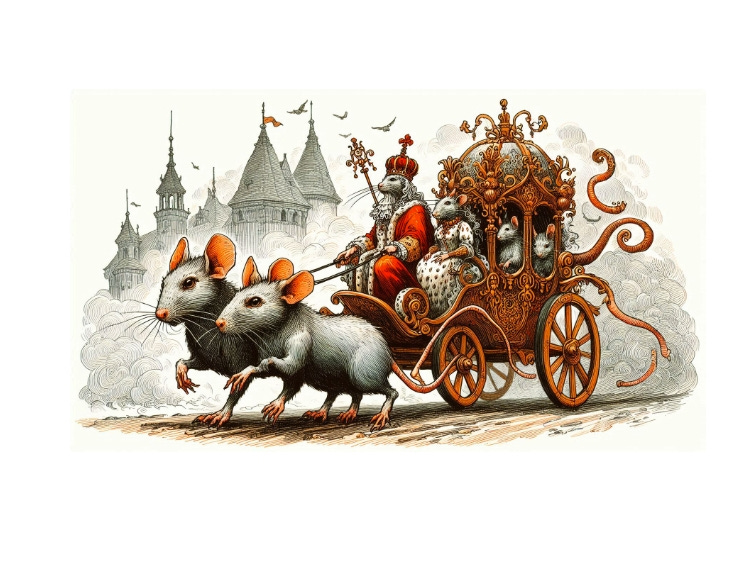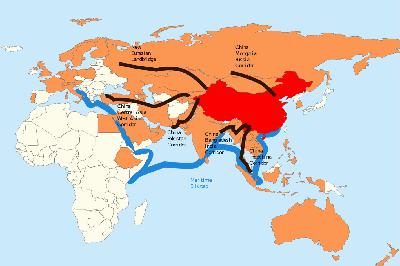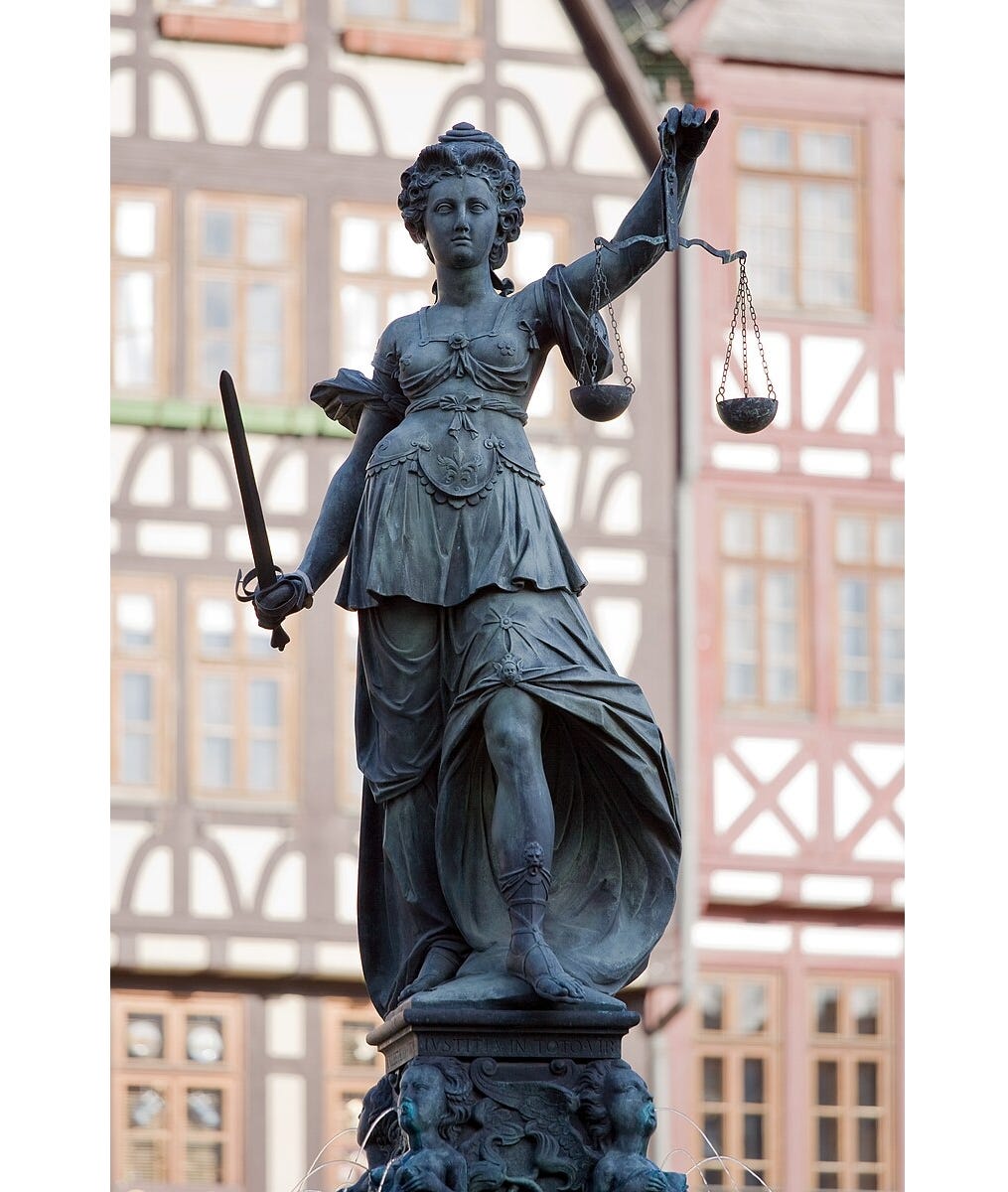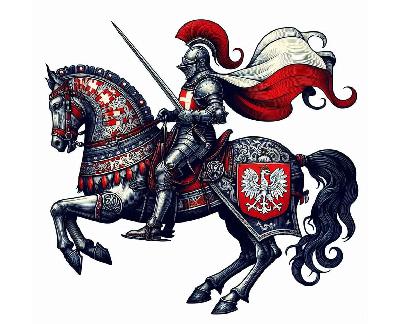The Rat King and his Patronage Network
Description
Regardless of whether leadership is elected, appointed, inherited, or seized by a coup, all political power ultimately depends on entangled threads of patronage that grow up underneath that political power, fueled by mutual obligation and self-interest. And as it grows, it begins to warp the minds of all those who get caught up in its net.
During the Roman Era, their entire political system revolved around elaborate patronage networks in which political support was openly exchanged for preferential access to resources, benefits, or favors. They didn’t even try to hide it — the Roman patron-client relationship was a formal and visible social structure that influenced elections, judicial decisions, and economic outcomes.
It was so deeply embedded in society and so openly practiced that Romans had a well-established daily morning ritual, called the salutatio, in which clients visited their patrons every morning to greet them and request favors. Power was easily measurable simply by watching who showed up on someone else’s door — it was a brutal, efficient, and a refreshingly honest way of practicing corruption. Until the 2nd century BC, even voting was done out in the open for all to see (no secret ballots) to allow patrons to verify whether their “investments” into their clients were paying off at the ballot box.
The feudal system that emerged in Europe after the collapse of the Western Roman Empire evolved from this Roman system, with liege lords, vassals, and serfs bound together via mutual oaths and formal hereditary legal obligations. Indeed, various waves of increasingly formal legislation passed during the late Western Roman Empire (under Diocletian, Constantine the Great, Theodosius, Valentinian, and Justinian) imposed successively greater restrictions on mobility, began binding tenant farmers (coloni) to their land, and made their legal status hereditary. These increasingly restrictive laws were all passed in response to labor shortages and the need to maintain tax revenues and food supplies as Rome shifted away from a slave-based economy to a tenant farm economy — these late-Roman legal reforms later evolved as the legal precedent for feudal serfdom in medieval Europe after the Western Roman Empire collapsed.
Whereas the Roman patronage system was based mostly on customs and traditions, the feudal manor system left less to chance — they formalized their patronage system with clear laws. They also expanded it to include church tithes, which were absent in Roman law, thereby formally embedding the Church in the State’s political patronage system. Financial dependency and political loyalty are inextricably linked — the leash may be invisible, but that doesn’t make its effect any less powerful on the mind.
And, much like what’s happening under wokeism today, while those within the feudal patronage system were in constant competition with one another for prestige, power, and privilege, they nonetheless were highly cooperative in banding together to put down any peasant revolt that emerged to try to overthrow the system as a whole — the famous German Peasants’ War in the 16th century (the largest and deadliest social revolt in Europe prior to the French Revolution) was notable for how the legions of local lords, which had essentially been at war with one another for nearly a millennia, managed to put aside their differences long enough to protect the patronage system as a whole by brutally suppressing the poorly armed peasants who demanded an end to serfdom, slaughtering hundreds of thousands.
However, the collaboration required to suppress this German Peasants’ War exposed the fragility of the decentralized feudal structure and bolstered the authority of local princes at the expense of lesser lords and knights — in time this shift concentrated ever more power in the hands of regional rulers and eventually led to the rise of powerful centrally-controlled monarchies. The patronage system not only adapts to changing political circumstances but even drives those political changes as the patronage system re-orders itself to adapt to new challenges that emerge to threaten the patronage system. As one form of the patronage system proved less useful, another emerged to replace it. It would seem that the leash created by participation in the patronage system cuts in both directions.
As power was concentrated in the hands of centralized monarchy, the character of the patronage system evolved once again to become less formal and more flexible, involving payments, pensions, and gifts in exchange for political and military support. And as monarchy continued to evolve to gain ever more power concentrated at the very top of the political hierarchy, this ushed in the Age of Absolutism, in which monarchs held absolute power, unconstrained by other institutions like legislatures or the Church. The patronage system evolved right along with it.
This led to the absurd picture of life at the court of France’s Sun King (Louis XIV) during the second half of the 17th and first decades of the 18th centuries, which I described in my book, Plunderers of the Earth (Amazon Affiliate Link):
On any given day there were anywhere between 3,000 and 10,000 nobles of greater and lesser status living in the guest rooms at the Palace of Versailles, all vying for influence with the king. Since virtually everything depended on the whims of their king, practically the whole of French nobility permanently resided at the Palace of Versailles, out of necessity, in order earn (and maintain) the favor of their king.
It was a never-ending game of jockeying played out in the courts, luxurious gardens, and between the sheets of Versailles’ more than 2,300 rooms, where even a trip home to visit your estate could spell catastrophe if, in your absence, someone else managed to catch the king’s eye and convince him to transfer your titles, privileges, or estates to someone more deserving.
In refusing to grant favours asked for by some noble, Louis XIV habitually remarked, "We never see him", meaning that the hopeful claimant did not spend enough time playing the game at the Palace of Versailles. It's a snapshot of life in a golden birdcage, where the pomp, prestige, and never-ending theatrics are a thin veneer disguising lives trapped in a golden cage.
If you visit Berlin today, you can tour Sanssouci Palace, the opulent former summer palace of Frederick the Great, King of Prussia — on the tour they describe how the morning salutation had once again been resurrected (similar yet different from the Roman salutatio). Every morning, half the court lined up to visit the king’s bed chambers to greet him upon waking up, with a formal hierarchy established as to who could stand where (proximity was directly related to political connectedness in the power hierarchy) and in what order they could greet the king. Obviously, a never-ending game of intrigue was played among the courtiers as they jostled for position.
Even the job of the person managing the king’s chamber pot and wiping his bottom was a highly sought out and socially respected position, open only to those belonging to the aristocratic landowner class, as the position offered great influence and opportunities for promotion because it placed him closest to the king’s ear. And yes, in case you’re wondering, all this happened in front of the audience of privileged courtiers who attended the morning salutation — it was all part of the ritual of the court 😳 — which shows just how absurd and illogical things can get in order to cater to that all-important patronage network. If you think what’s happening in society today is because society has lost its mind, think again — you’re not viewing these phenomena through the lens of the patronage network.
In England, this highly sought-out position in charge of the king’s chamber pot became formally known as the Groom of the Stool — through the Groom of the Stool’s intimate conversations with the king and the access to secrets and influence that this placed in his hand, this position led to him becoming one of the most feared, respected, and powerful figures within the court. As Wikipedia points out, by the time of Henry VII, the Groom of the Stool had evolved into a powerful official involved in setting national fiscal policy under the “chamber system”. Talk about multi-tasking!
With the emergence of liberal democracy, which was supposed to dismantle this hierarchical hereditary system and replace it with purely democratic decision-making, meritocratic institutional promotions, and transparent government contracts, the patronage system evolved new informal ways of adapting to this new environment, with loyal supporters somehow always gaining preferential access to positions in ministries, agencies, or advisory roles, and with politicians learning how to appeal directly to voters, implicitly or explicitly, in a quid-pro-quo system that exchanges favors for votes — known as clientelistic democracy. The checks and balances we thought we’d placed on democracy in order to keep it small and honest never stood a chance.
This is why rotten, corrupt, tyrannical, or dysfunctional democratic systems, from Zimbabwe to Canada and beyond, are impossible to dislodge — once a coalition of loyal supporters is built, that patronage system, enabled by nudges, winks, and back-room negotiations, and lubricated by generous showerings of tax dollars and regulatory privileges, ensures that financial self-interest maintains a core, regime-friendly, loyal support base inside the institutions and at the polls, irrespective of how destructive that regime is to t
























